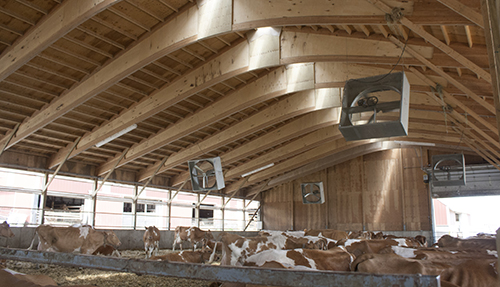
A drop in feed intake and loss of milk yield are some of the immediate impacts hot weather can have on a dairy herd, but the aftermath of steamy summer days can last long into the fall.
One long-term aspect of dairy cattle care that is impacted by heat stress is reproduction. During a recently released University of Wisconsin-Extension podcast, Paul Fricke, reproduction specialist with the University of Wisconsin-Madison, explained why hot weather makes it harder to get cows bred.
"High-producing dairy cows produce a lot of internal heat simply as a by-product of the increased metabolism associated with this very high level of milk production," he said. In cooler weather, cows can dissipate this heat, but when outdoor temperatures rise, they start to lose the ability to do so.
Normal body temperature for a mature dairy cow is 101.5°F, but during heat stress, body temperatures can rise as high as 106°F. "As body temperature increases, we start to see all kinds of problems with the physiology of reproduction," Fricke explained.
One of these problems is that estrus expression is significantly reduced. Fricke noted that this makes it much harder to identify cows in heat and get them inseminated, which obviously has a negative impact on reproduction.
Heat stress also affects the actual fertility of the cow. Fricke explained that in the few days before and after ovulation, the early embryo is highly susceptible to the cow's elevated body temperature. A class of proteins called heat-shock proteins can prevent this problem, but in the early development stage, those proteins aren't able to be synthesized. The result is a drop in conception rate, which is associated with higher pregnancy loss.
According to Fricke, research has also shown that fertilization rates drop quite a bit as well. All of these reasons highlight the need to keep cows as cool as possible all summer long.
"There's some pretty severe things that can happen on the female side that really impact reproduction and decrease reproduction performance in these lactating dairy cows," he said. And, unfortunately, these negative impacts can come back to haunt us long after the dog days of summer have passed.
August 22, 2016








